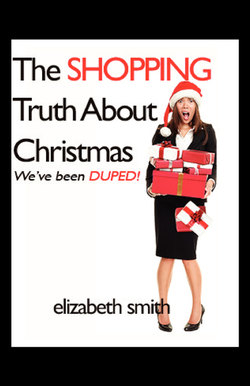Читать книгу The Shopping Truth About Christmas - Fran Bennewith - Страница 4
На сайте Литреса книга снята с продажи.
Christmas Statistics
ОглавлениеIn a survey conducted by ConRes in December 2010, the following information was gathered:
54% of the survey agreed that Christmas was overrated
61% of the survey said that it was mainly for children
36% of the survey said that they would be attending a church service
51% of the survey agreed with the statement “The truth of Jesus is irrelevant”
In another survey done by the Evangelical Alliance Information End Research in November 2011, it was found that only 10% of adults think the most important aspect of Christmas is it’s religious meaning.
68% of the adults said that they would spend Christmas with family
18% would spend it with family and friends
7% would spend it with friends only
6% would spend it on their own (mostly the poorest and oldest)
Polls of 116 people interviewed by Mental Health Charity Mind on “Anxious about paying for Christmas” found:
25% felt depressed about it
20% will have problems paying for rent and mortgage in the Christmas period
Over 50% admitted to having spent more than they could afford
33% estimated that it would take them more than 6 months to pay back their Christmas debt
In other Global statistics, a series of questions were asked:
1. ”Should we re-think Christmas?”
41% said yes
15% said no
29% have done so
2. ”Does the environmental aspect worry you?“
34% said yes
65% said no
3. ”Will you reduce Christmas shopping in view of the economic crisis?”
47% said yes
32% said no
4. ”Do you get depressed on Christmas?”
27% said always
48% said sometimes
24% said never
Christmas is a purely Christian religious celebration and it is amazing that the figures above show that so many people show so little regard or reverence towards it. It is also inconceivable that Christmas has become so commercialized, leaving so many people feeling depressed and financially strained. It was never supposed to be like that. So what is Christmas all about and how can we alleviate the stress and wasted energy?
Christmas is obviously a Christian tradition, but what does it mean?
Christmas is a word derived in 1308 from the Middle English word, Crislemass. It can be broken into “Christ” and “Mass” mass meaning celebration. Other names include:
”Mid-winter” (winter solstice)
”Nativity” meaning birth
”Yule“ referring to the period corresponding in December and January
”Noel“ (Nowell) used in English in the late 14 century
